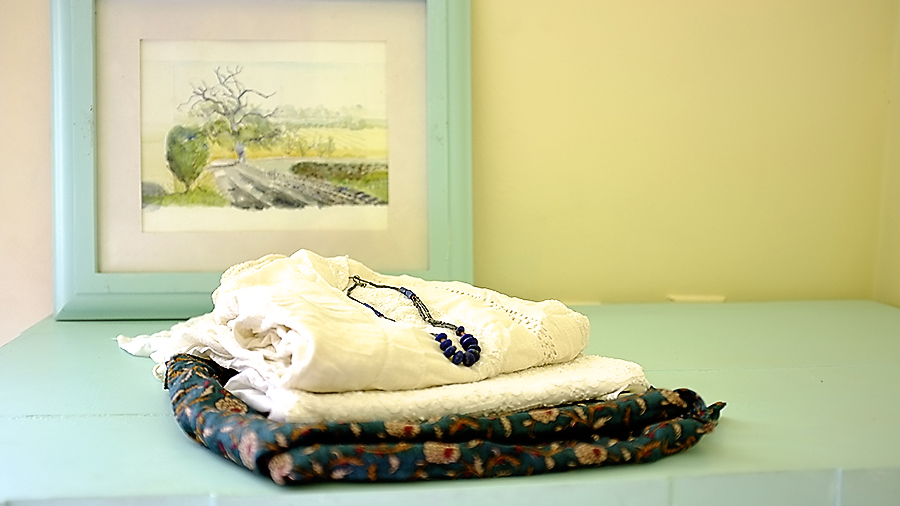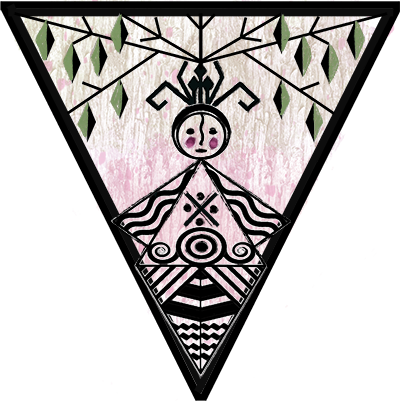
We often discuss in my house about our values and how we ascribe value based on general cultural predetermination, our own pleasure-seeking mind, our desire to show off a status, etc. It can be a heavy discussion, but here, today, I’m going to focus on clothes. Which is not as light a topic as it may seem.
Yesterday, in an attempt to make something happen on a rainy day (the baby needs to go outside every day, or he drives me out of my mind), I went to the big thrift shop. I needed to donate some bags of clothes that I had packed during the great closet cleanout of 2014 and I wanted to look for a summer hat for the baby and maybe even some pants for him, because there is a strange supernatural phenomenon taking place in our abode of horrors: all the baby pants go poof in the night at regular intervals.
Of course I ended up trying on two pairs of jeans myself, while holding the baby prisoner with one arm and one leg, because he was trying to crawl out from under the changing-room door. And I also perused the bags and the scarfs, because they’re always pretty to look at. Of course I walked briskly, with the child already cranky and complaining in the cart, through the skirt aisle. I am always on the lookout for linen or silk maxi skirts, because what else is summer for. And then I saw there this vision of a dusty pink pleated long skirt. It looked beautiful, so I quickly picked it up and looked inside at the label. It was a high fashion brand but it was all polyester. I wrinkled my nose in disgust, then quickly felt self-conscious about it (what if someone actually liked that skirt,who was I to ruin their pleasure), then left. At home I checked the price of the skirt online. A new skirt was selling (it is now sold out from everywhere) for over $300. $300 worth of polyester! How?
Leaving aside my inner pride of having spotted such pricey items in thrift stores not only once and my (formerly secret) fantasy that I could make good money as a “picker”, the experience left myself thinking of value in today’s fashion world.
A few weeks ago I also found in the thrift shop a pair of jeans made by the famous designer daughter of a beloved British rock star. Those jeans are sold for exorbitant prices. They were even made in Italy and all. And yet the quality was terrible. The sewing around the zipper was wonky, and the stitches big and uneven. The quality of the denim fabric was not impressive at all (thin and not luxurious in feel at all). Why?
The only obvious answer is that we don’t pay for the product itself and its intrinsic value, but for the privilege of owning a brand-name item, which in turn bestows upon us an aura of specialness and exclusivity. We stopped valuing things for what they are and started to only look at what they promise probably when we dropped gold and silver coins in favor of pieces of paper. Oh, the old ways! Why do I always find them so much more appealing? (Well, kind of. It’s not like I would go rush to the Dark Ages if given a chance. I do prefer my hygienic and comfortable living quarters, and I don’t appreciate the brutality and violence that humankind proved to be capable of throughout those times.) Oh, look at this little word: “brutality”. I avoided “savagery”, because you know, I don’t actually believe that “civilization” is all that great (it’s name was used to destroy and plunder many beautiful, harmless “savage” cultures). And then I found “brutality”. In the sense of cruelty and lacking compassion, but the word at its root is meant to compare humans with other animals, as if only animals are cruel and violent, and we humans are oh so great. There is little truth in that. Why do I have so much trouble finding my words today?
All right. Please, forgive the digression (and blame it on my sleep-deprived and clearly suffering brain) and let’s return to the more fun topic of clothes.
I like to think of myself as someone who has her own system to determine value. As you know, for clothing my system starts with selecting only natural fibers and buying used items, and it goes on, if possible, to choosing organic fibers (because they are gentle to the earth and us and organic farming needs to be supported), to preferring a charitable company with good work practices that respect the workers and the environment. If all these criteria are met, then I’m really happy. Most often I have to be content with meeting just the first two or sometimes just the first criterion, because I want to keep my kids dressed most of the time, don’t I?
Brand names are never on my list, but when I find well-made name brand items in the thrift store, I do go for it. Huge name brands are not too bad from an ethical viewpoint. They produce fewer items (less trash!), usually it’s good quality (it lasts a longer time, so again, less trash), many times their workers are well treated (the stuff is made in France or Italy), sometimes they employ authentic artisans, thus continuing old-time traditions that get a chance to survive and be widely appreciated. The value these brands try to project is inflated and ridiculous, but not unethical. Are they worse than the fast fashion industry? I don’t think so. So even someone like me can see some value in big name brands. However, everything the big names offer, except for the price point and the image of exclusivity, can be found by someone like me in handmade items directly sold directly by artists and artisans who price their work so they can make a profit and make a good living, but not so that they can grow empires and dominate the world.
I think we should look inward for uniqueness and find value in the small and the humble. We should be dreaming small, because big only got us in this situation where corporations will do anything for growth, disregarding basic human needs and rights, disrespecting the ways of nature, and bringing the whole world to the dire economic and social impasse where it finds itself today. Again I find myself advocating for dreaming small. Think big but dream small. Really, it’s OK. It’s not depressing. It’s freeing.




And you made the picture look beautiful! x
And you made the picture look beautiful! x
You know, I grew up in Britain, under Thatcherism, and Margaret Thatcher was famously accused of “Knowing the cost of everything and the value of nothing.” – that’s stuck with me.
I don’t like waste, I buy second-hand as much as possible and I recycle. But I like to dream. I think we can dream and it not be about power, I think we can dream and it not be at the expense of someone else, and I think we can dream and stay humble.
Your posts inspire me, Lori, and they make me want to dream better. I like what you wrote in the post you linked to, too, about representations of reality being opressive. Reality can be whatever we want to make it, I guess, it’s simply another construct by virtue of having a noun attached.
I didn’t know that quote. I think many people are like that. And I am a dreamer too. I cannot change that about who I am, I think. Nor do I want to. I just like to keep money out of my dreamland, I guess. Otherwise, nothing wrong with dreaming at all. I think dreamers make the world a better place 🙂
You know, I grew up in Britain, under Thatcherism, and Margaret Thatcher was famously accused of “Knowing the cost of everything and the value of nothing.” – that’s stuck with me.
I don’t like waste, I buy second-hand as much as possible and I recycle. But I like to dream. I think we can dream and it not be about power, I think we can dream and it not be at the expense of someone else, and I think we can dream and stay humble.
Your posts inspire me, Lori, and they make me want to dream better. I like what you wrote in the post you linked to, too, about representations of reality being opressive. Reality can be whatever we want to make it, I guess, it’s simply another construct by virtue of having a noun attached.
I didn’t know that quote. I think many people are like that. And I am a dreamer too. I cannot change that about who I am, I think. Nor do I want to. I just like to keep money out of my dreamland, I guess. Otherwise, nothing wrong with dreaming at all. I think dreamers make the world a better place 🙂